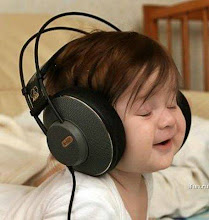I'm About A Hundred Years Late With This Post
So, over the last couple of days I’ve been listening to and considering a 2-disc set of the Complete Works of Edgard Varese. This is a very interesting set of music to me because it’s antithetical to most common notions of beauty or even the common methods of composing music. I am totally unable to suss out Varese’s methods for coming up with these sounds apart from pure random expression. Suffice it to say, this is some of the more dissonant music designed for the concert hall that you’re likely to hear.With the turn of the century came a decreasing interest in Common Practice melody and harmony on the part of composers, (I’m thinking of Schoenberg’s Twelve-tone system), and Varese’s music just seems like the logical extension of that mindset. The textures change very rapidly from sparse woodwind tweets and toots to massively thick brass and percussion-fueled chords, (lots of biting bass trombone and cymbal), that’ll put hair on your chest.
I’m a guy, so I like those parts best.
Lots of talk is generated by Frank Zappa’s fanaticism for Varese and sure, I can hear the Varese in FZ’s “orchestral” works, but I was proud of myself for being able to hear shades of his contemporary Richard Strauss, without realizing they knew each other.
Another interesting aspect of Varese’s music, (other than what I hear as a loathing for stringed instruments), is his interest in electronic musical instruments that were developing during his life. He was very excited by the theremin and Ondes Martinot, which I’m sure he predicted would replace the old orchestral instruments of the symphony orchestra. This interest is probably why he is often labeled as a “futurist,” despite his discomfort with the word. But most of the time he sounds to me like Stravinsky on steroids.
This is music you certainly don’t wind up whistling later, but I can’t deny its bludgeon-like power and clear testimony of what was on the minds of artistic types in the early twentieth century—machinery and abstraction. Unlike the academics Schoenberg and Webern, who can sometimes sound clinical and anemic, despite the revolutionary ideas behind their music, Varese’s barbaric, “unspeakable visions of the individual”1 make it clear exactly what was at stake with the death of tonality.
So, if you want to hear some music that will blow your mind and challenge just about every assumption you have about what the audible art should sound like, I recommend this guy's music. (And I’m not as up-to-date with art-music composers of the last century, so I’m sure there is a lot of stuff even more “out-there than these two discs.)
I never got to twentieth-century music theory when I was in college, so this has inspired me to read up a little bit…
1 Ann Charters, The Portable Beat Reader, 1992.


0 Comments:
Post a Comment
<< Home